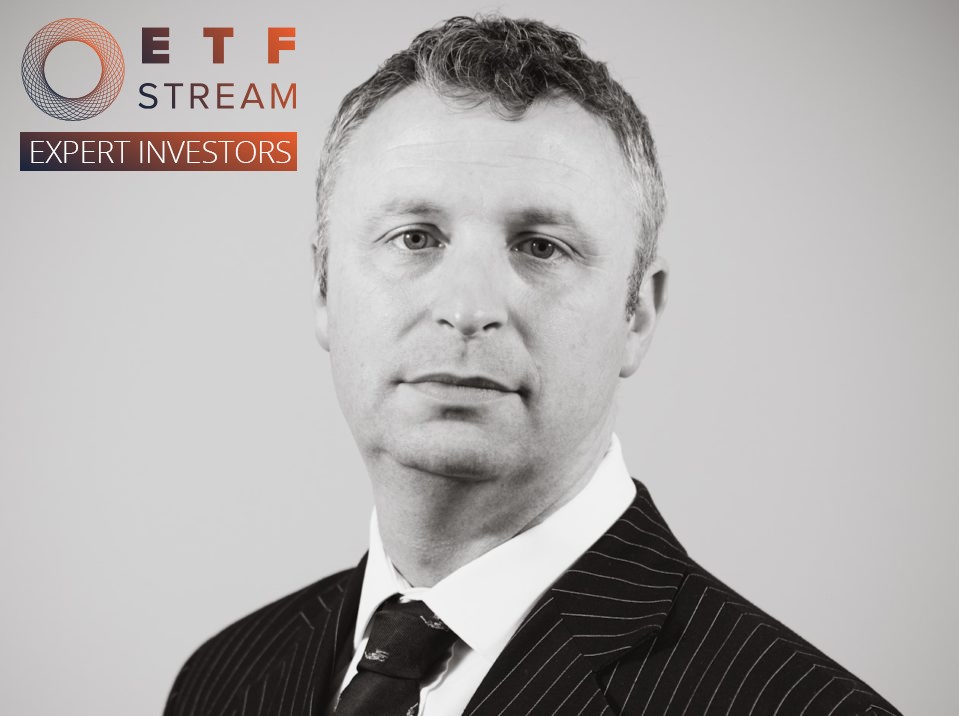Expert investors is a new series brought to you by ETF Stream where on a fortnightly basis we interview the key individuals from across the fund selection and research space about the ETF industry.
Fund selection plays a crucial role in portfolio construction. Once the asset allocation decision has been made, these individuals need to decide how they want to be exposed, be it through a mutual fund, investment trust or ETF.
Over the years, ETFs are becoming an increasingly important part of any investors’ toolkit. This series will show how the key players across the fund selection space use ETFs in their portfolios while asking what more can be done by the ETF providers to help with this increasing adoption.
First in the hot seat is Richard Philbin (pictured), CIO of Wellian Investment Solutions. Philbin is a stalwart of the wealth management industry having started his career in 1994 at Berkeley Fund Managers before joining Towry and subsequently F&C Asset Management. After seven years at F&C, he joined Architas as CIO in May 2008, where he spent two years.
How much of your portfolio is made up of ETFs/index funds?
Very difficult to answer as a whole. Most of the money is on platforms and in model portfolios. Platforms and models and ETFs are not the best of bedfellows due to issues surrounding fractional trading and dealing costs so the answer is low.
However, we also manage a number of unitised models where ETF holdings are in all of the models. If the dealing problems with platforms and ETFs and model portfolios get solved, our exposure would rise dramatically from where we presently stand.
When did you start investing in ETFs?
I have invested in ETFs in a professional capacity for about a decade (maybe even more) but this would have been in different companies with different business models. They were bought for a number of reasons – cost, tracking error, access to markets, transparency, diversification.
Which asset classes do you tend to invest in through ETFs?
Where we can invest in ETFs, we will include them in our searches. Most of the assets we have under management in ETFs is predominantly in the equity asset class, but we have exposure to fixed income, hedge fund replication and multi-asset funds. An ETF has to stand up on its own right for inclusion in our portfolios, we do not just buy them “blind”. There is a lot of due diligence needed to be undertaken before acquiring a position.
Any areas you would avoid?
All options are open to us, but if we do due diligence and a product does not stack up we avoid it. For example, a number of the “active” ETFs, have “rules” we find unpalatable and therefore would avoid.
We are longer-term investors by nature, so some of the highly geared and inverse geared funds would generally be outside of the scope of what we are looking for. Also, many of the ETFs which are derivative based and continual roll-over of options, for instance, we tend to avoid.
What is your methodology for selecting ETFs?
Ultimately, we want to deliver the best to our clients. High-level cost (i.e. AMC) is obviously important, but when looking through at the total cost of ownership, you need to be mindful of things such as withholding tax treaties in relation to the domicile of the fund. We also look at tracking error and tracking slippage.
The product itself is very important – are you buying a fund with full or partial replication? Is the ETF stock lending? The index is evidently a crucial part of the selection process. In the UK, for example, the MSCI UK and FTSE All Share offer you very different exposures.
What ETF products would you like to see more of?
I think there will be more active ETFs coming to market, not just rules based ones. I would like to see more multi-asset ETFs as this is something the ETF industry is yet to grasp. There will be more ESG products going forward as this is a trend that is here to stay.
What areas could ETF providers improve?
By and large, the ETF sales teams need to do more. Education, differentiation and time spent with ETF buyers is needed. As FTSE Russell and MSCI charge more for index licenses, I expect to see greater disruption in the index provider space, and this will lead to more complexity and choice for investors.
Many ETF providers have hundreds of funds in their quiver – multiple currencies, hedged etc. and this provides a bit of a headache for buyers. Also, the database providers need to get a better handle on ETFs – searching under SEDOL or ISIN can deliver different funds, different prices etc. As the ETF market grows, the database providers really need to be on top of this.
Expert investors is a new series brought to you by ETF Stream where on a fortnightly basis we interview the key individuals from across the fund selection and research space about the ETF industry.


